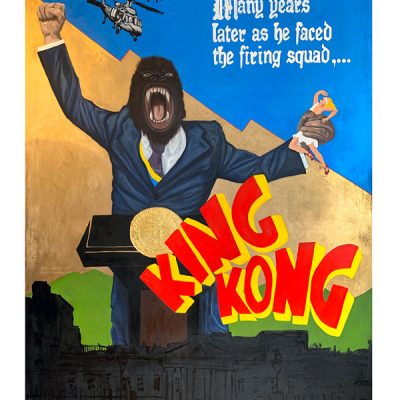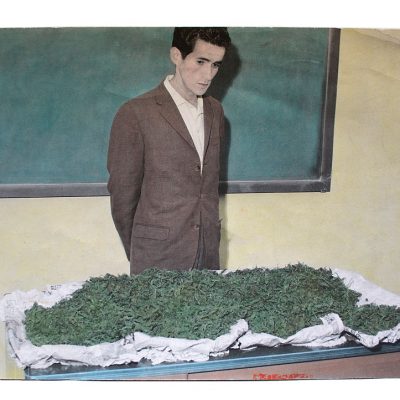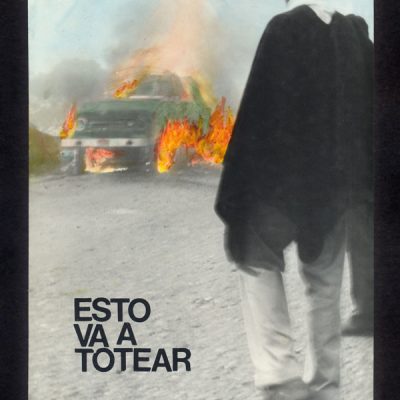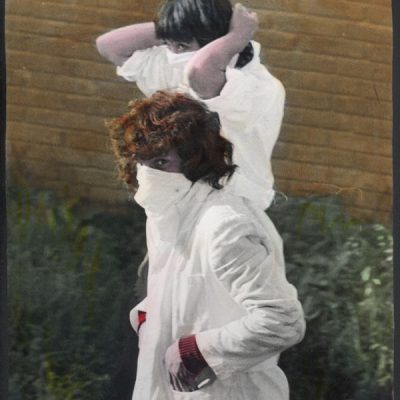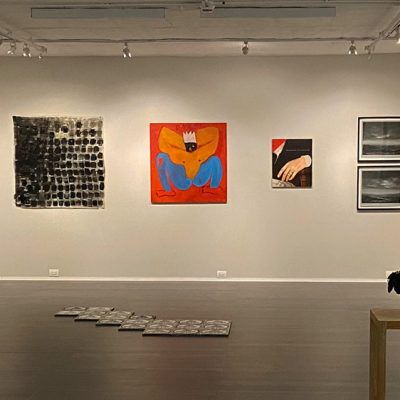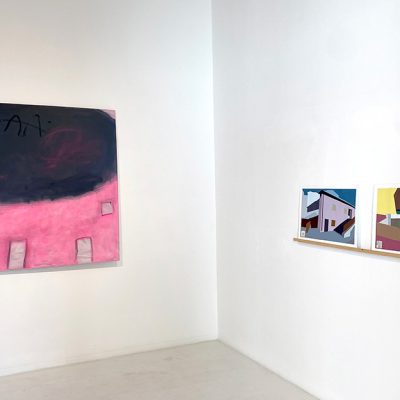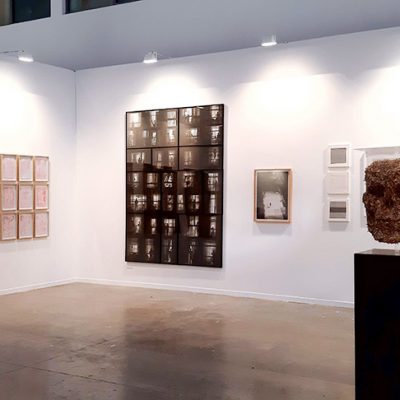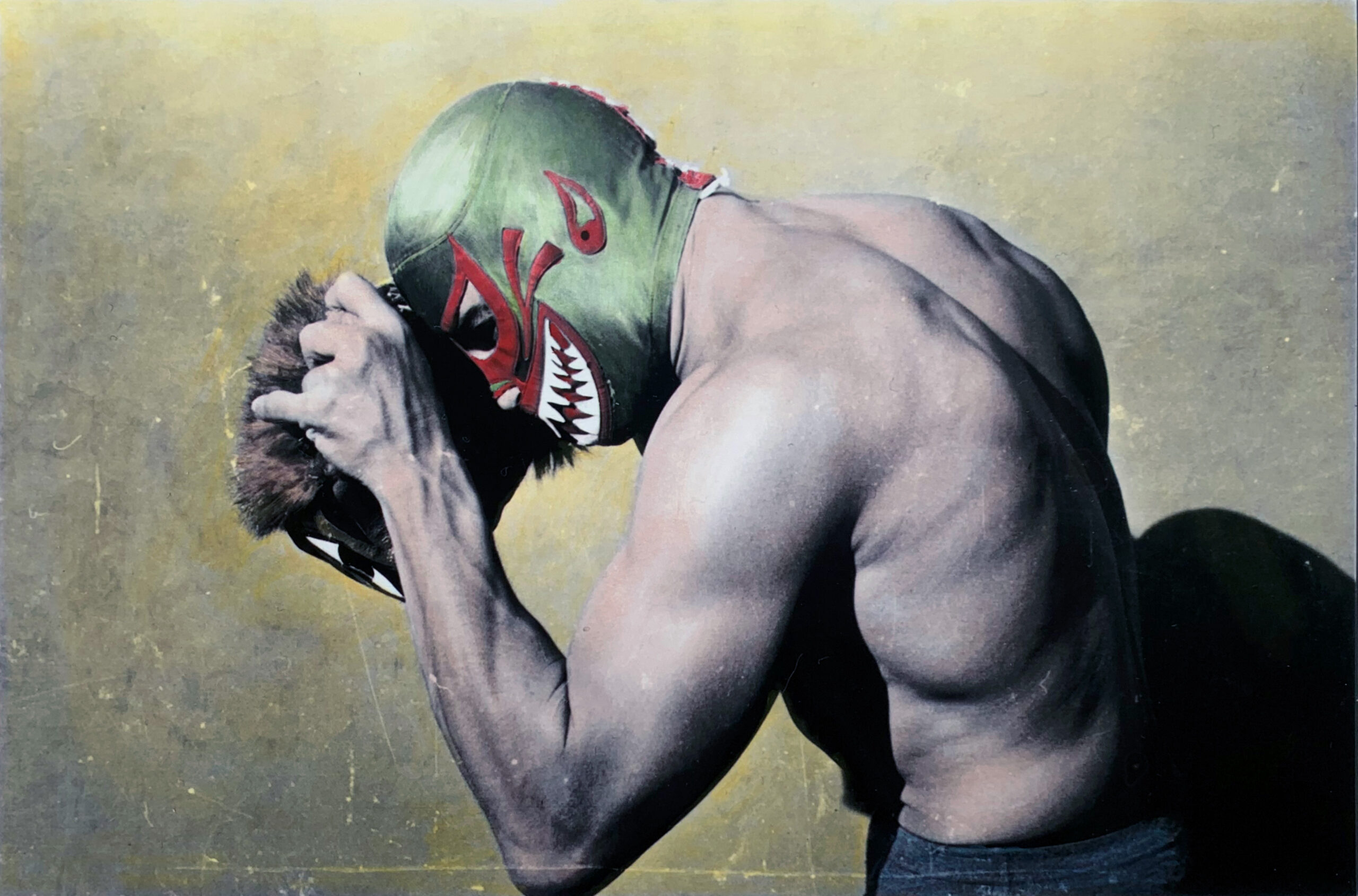

Orjuela's work proposes a reinterpretation of certain social, political and historical events, whose analysis over time allows for multiple interpretations, even contradictory ones. Behind an image of King Kong a political criticism can be hidden. His visual repertoire is filled with elements of popular and mass culture: magazines, comics, press photo archives, toys, masks, family photo albums, rescued from street sales, among others. All these symbolic elements make up a rich and personal collection of images that the artist classifies, saves and consults in building associations for his work. These elements are the starting point of a game of ironies that emerges unexpectedly in his work, in a paradox between the festive character of the popular poster and sociopolitical criticism.
One of the key mechanisms in his artistic production is the systematic construction of the work in a succession of layers of paint, images, prints and texts. The action of superimposing and covering the initial image -physically and metaphorically- is parallel to that of curing or repairing, completing or restoring. What is presented as the finished work is both a final object or construct, and the link in a series of images that refer to a critical question about society. His cycles function as open sets, allowing the addition of new elements over time, and even if he declares them finished, his references are strong enough to allow future additions.
The visual records that lie like accumulations in various archives are used by the artist as material for the construction of bridges that unite recurring events, revealing the tendencies and social habits that are hidden behind the images. The isolated events of the red note, for example, are really chained incidents of daily violence. The artist, encouraged by his fascination with the serial, reveals how violence is constructed, consumed and recycled through its dissemination and consumption in the mass print media.
As an example of the above, the casual sighting of a particular image from the 'Alarm' magazine on a corner in Mexico City announcing a massive crime triggered the production of an extensive series of works. This publication, now defunct, was established for the artist in a universe with a visual and written language that he took advantage of as a trigger to carry out a series of successive interventions on its pages, until reaching the intervention of the magazine's production itself. . In the background, the artist raised a questioning of the blurred limits between ethics, the culture of consumption of porno-violence and the mechanisms of censorship.
Orjuela's interest in discovering and reconfiguring the representation of violated bodies in press photography continued with his project 'Archivo muerto', where the artist rescued a black and white press photographic archive that he intervened by coloring or illuminating it in the as it was done before the advent of color photography. The artist 'shoots' with his gaze over the past to point out, project, and highlight the visual, ethical, and political codes that survive in press photographs.
In his most recent project, 'Under the mask', the masked body stars in a wicked game. We look at the image; the effect of the gaze that the masked man returns to us is sinister. The masked wrestler stands out in the newspaper archive image of him; to complicate matters, the background corner suggests, in pastel colors, a scene from a play by Luis Barragán. In the collages, paintings and installations of this series, clues about the ominous, the sinister and the abject multiply, creating various games of meaning. In his political references, the question that finally emerges is about the dark core that resides in the centers of power and within each human being.
From the representation of violated bodies in press photography to photographic albums, the idea of the monstrous is a constant in Orjuela's work.
In short, at a time when the explosion and massive dissemination of images of war and violence are being experienced, Orjuela's work questions, as a thinker of enlightenment, the limits between what is permissible, what is reprehensible and freedom, as well as about the social implications of various processes originating in photography and journalism linked to violence and its media coverage.


